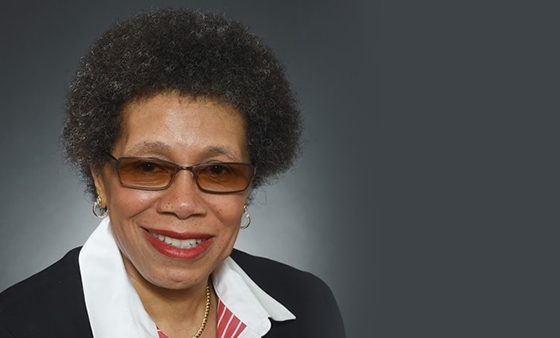
Already a scholar and practitioner with many accomplishments and accolades, Beverly Greene, Ph.D., Professor of Psychology, received further recognition from the American Psychological Association (APA) Division 44: Society for the Psychology of Sexual Orientation and Gender Diversity this summer, when she was presented with its Distinguished Service Award.
“It is an honor to be recognized by the APA,” she said. “All therapists should be trained to be sensitive to the needs of a wide range of patients, and to their social realities. Psychotherapy must explicitly explore the social realities and nondominant cultural narratives of marginalized group members if it is to be an effective process.”
Dr. Greene’s groundbreaking research emphasizes the intersectionality of social identities as a framework for understanding mental health. She is a pioneer advocate for psychologists to better understand the intersections of race, gender, and sexual orientation, and the development of multiple identity/intersectional paradigms in psychotherapy.
Her work reflects the University’s commitment to diversity, equity, and inclusion, as well as the Clinical Psychology program’s focus on diversity in training, practice, and research.
Dr. Greene was founding coeditor of the APA Division 44 book series, Psychological Perspectives on LGBTQ Issues, and she is the editor and author of more than 100 scholarly publications. The 2008 recipient of the Society for the Psychology of Women’s Carolyn Sherif Award, Dr. Greene was also presented in 2009 with the APA’s award for Distinguished Contributions to Psychology in the Public Interest.
Prior to her career in academia, Dr. Greene worked in public mental health for 10 years."Academia was not my plan, but I discovered that it is exactly where I should be,” she said. “My work as a practitioner has been essential to understanding how to train future clinicians about how psychotherapy works and how social biases are often embedded in the assumptions therapists make about their patients.”
Dr. Greene sees this field of psychology she has pioneered changing and growing. “The question of how to be more sensitive to people who belong to socially marginalized groups is becoming more fundamental to the discipline of psychology,” she observed. “It is gratifying to see so many other folks who are doing this work. It is no fun being a voice out in the wilderness.”
